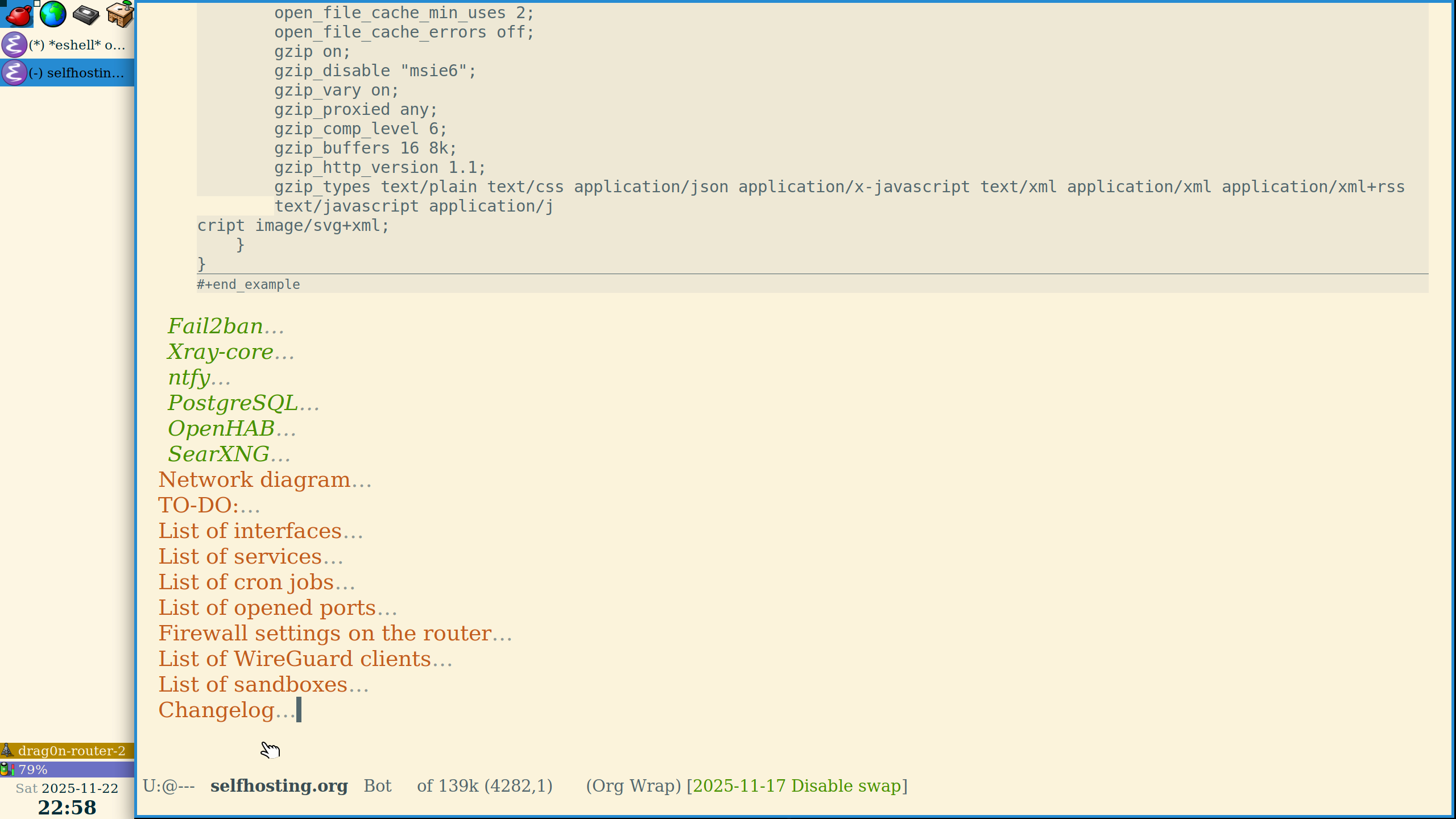Search results for tag #lua
@writefreely the project seems very much technologically and value aligned with @silverbulletmd: backend written in #golang, simple single binary deployment, open source, open standards, minimalist design. This may well become my recommended way of sharing content from #SilverBullet
But again, first need to hack together a proper integration in #lua. Seems straight forward enough, already got auth working.
The Awesome WM is awesome 
Often, it is described as "tiling WM for beginners". But inside it is powerful enough — it uses Lua scripting language inside it's configuration file. In the same manner, like StumpWM uses Common Lisp inside it's configuration file. So almost everything, almost any action, could be programmed with Lua.
Looks like Lua is simple enough — with the help of language manual I recreated my StumpWM configuration in one evening. And much more:
- Main (task) bar on the left.
- Widgets with menus: "wifi widget" with menu to call wpa_gui or call dhclient for some interfaces. And the battery widget with menu to setup the charging threshold.
- SVG icons (from Haiku) almost everywhere — in menus, in main bar, etc.
- switching between #Zig versions, I liked it more than the dedicated anyzig
- #Python venv activation – it's silly but feels so good, and collaborates with uv
- ensuring I have the right language server and formatter for a project, be it #Lua, #TypeScript, and trying out various options for Python
- setting LANG="C.UTF-8" only in the specific project folder because #Ansible refused to work with Polish...
The final boss was getting a really comfortable Tree-sitter setup: get the #Rust CLI, write grammar in #JavaScript, re-generate and run tests on source change as a mise Task. And then I only cloned the repo on another machine and was ready to go!
This post was written as a more cultured outlet for my excitement instead of aggresively committing mise.toml into every repository I touch
This is what #FOSS promises to be, and it does feel nice to actually do it.




